Youth Soccer Coaching - The Importance
oaches play a crucial role in youth soccer training, as they are responsible for developing fundamental skills and shaping young players into well-rounded athletes. Through age-appropriate drills and practice plans, coaches can help players master the basics of ball control, passing, shooting, and more. By focusing on these essential traits early on, coaches lay a solid foundation for future success on the field.
In addition to teaching technical abilities, youth soccer coaching also emphasizes teamwork and communication. Coaches create an environment where players learn to work together towards a common goal and understand the importance of effective communication both on and off the field. These valuable life skills extend beyond soccer and contribute to overall personal growth.
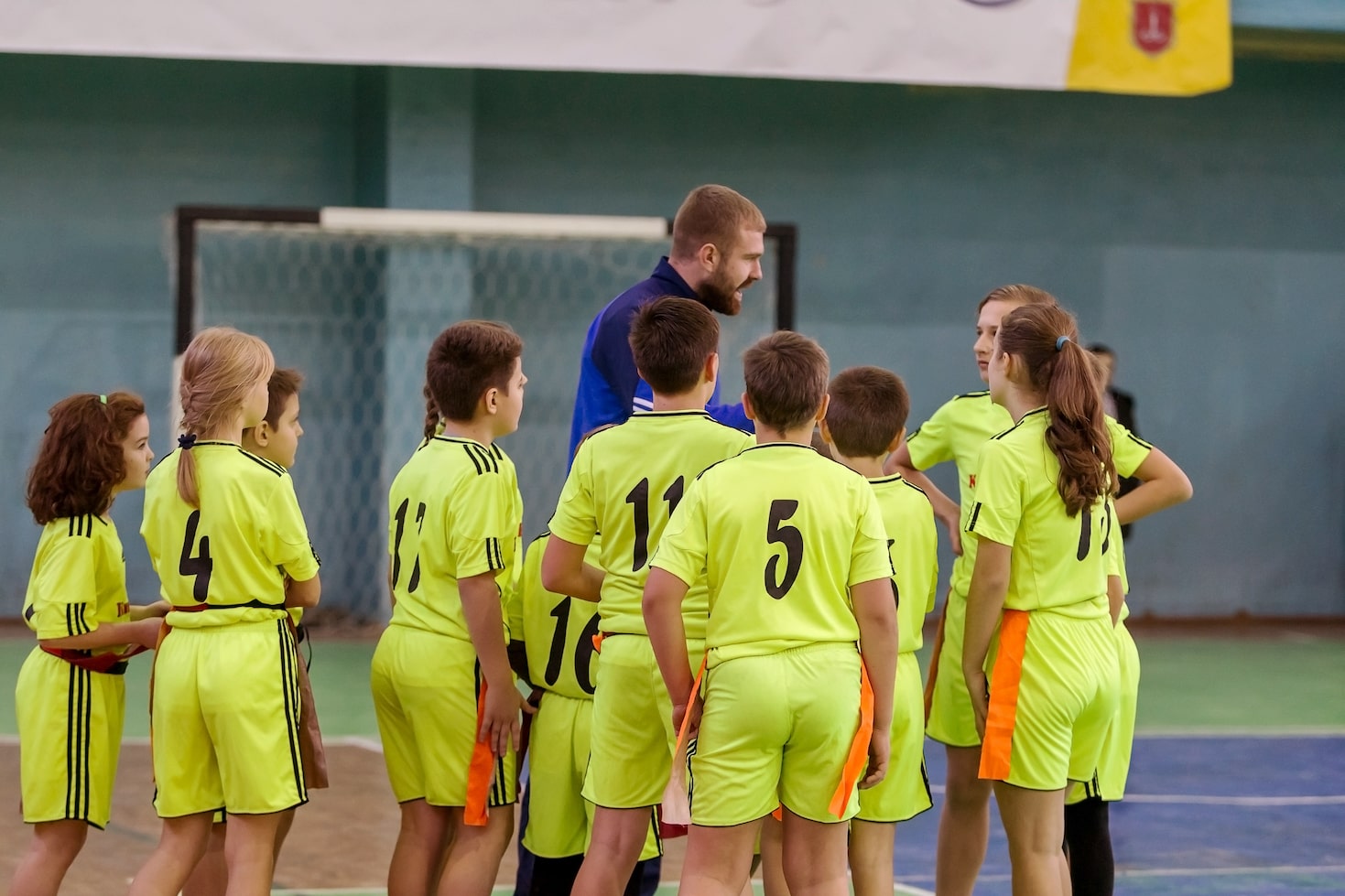
Furthermore, youth soccer coaching plays a significant role in instilling discipline and work ethic in young athletes. By setting high standards during training sessions and encouraging dedication to practice schedules, coaches teach their players important values such as commitment, perseverance, responsibility, and respect. These qualities not only enhance performance on the field but also translate into other areas of life beyond soccer and education.
Developing Fundamental Skills
Dribbling and ball control are essential skills for young soccer players to develop. These basics lay the foundation for effective gameplay, allowing players to maintain possession and maneuver around opponents. Coaches can emphasize proper technique through drills that focus on close ball control and quick changes of direction, helping players improve their agility and confidence on the field.
Proper dribbling, passing, and shooting skills are essential for young soccer players to master. These fundamental abilities not only enhance their gameplay but also foster teamwork and confidence on the field.
Passing and receiving skills are crucial for successful teamwork in soccer. Teaching players how to accurately pass the ball to their teammates while also learning how to receive passes is key in building strong connections within a team. Coaches can incorporate passing drills that emphasize accuracy, timing, communication, and movement off the ball, enabling players to effectively distribute the play across different areas of the field.
Shooting and scoring proficiency is an important aspect of youth soccer development. It requires a combination of technique, accuracy, power, and composure under pressure. Coaches can guide their players through shooting drills that focus on proper striking techniques using different parts of the foot or even headers for more advanced skill levels. By providing opportunities for repeated practice in various game-like scenarios, coaches help instill confidence in their players' ability to convert goal-scoring opportunities into actual goals.
Building Teamwork and Communication
Understanding positions and roles is crucial for building teamwork and communication on the field. Coaches should educate their players about the different responsibilities associated with each position, allowing them to grasp the bigger picture of how they fit into a cohesive unit. Effective communication on the field enhances coordination and minimizes errors. Players should be encouraged to use clear, concise instructions and actively listen to their teammates' feedback during gameplay. Collaborative drills and exercises can further strengthen teamwork by fostering trust, cooperation, and problem-solving skills among players.
- Teach players about different positions
- Emphasize clear and concise communication
- Promote active listening skills
- Incorporate collaborative drills in training sessions
Instilling Discipline and Work Ethic
Setting goals for improvement is crucial in instilling discipline and work ethic in youth soccer players. By helping them set specific, measurable goals, coaches can motivate their players to strive for continuous improvement. Promoting commitment to training sessions is another key aspect of building discipline and work ethic. Encouraging regular attendance and emphasizing the importance of consistent practice can help young athletes understand the value of hard work and dedication. Teaching sportsmanship and fair play also plays a significant role in developing discipline and work ethic among youth soccer players. Instilling values such as respect for opponents, following game rules, and accepting both victory and defeat with grace helps shape well-rounded individuals on and off the field.
- Setting clear objectives
- Tracking progress towards goals
- Emphasizing consistency in attendance at training sessions
- Communicating the importance of practicing regularly
- Teaching proper conduct during games
Youth Soccer Coaching - Key Principles
Creating a positive learning environment is a key principle of youth soccer coaching. Coaches should encourage and praise players, promoting teamwork and sportsmanship. By fostering an atmosphere of support and respect, players will feel motivated to learn and improve their skills.
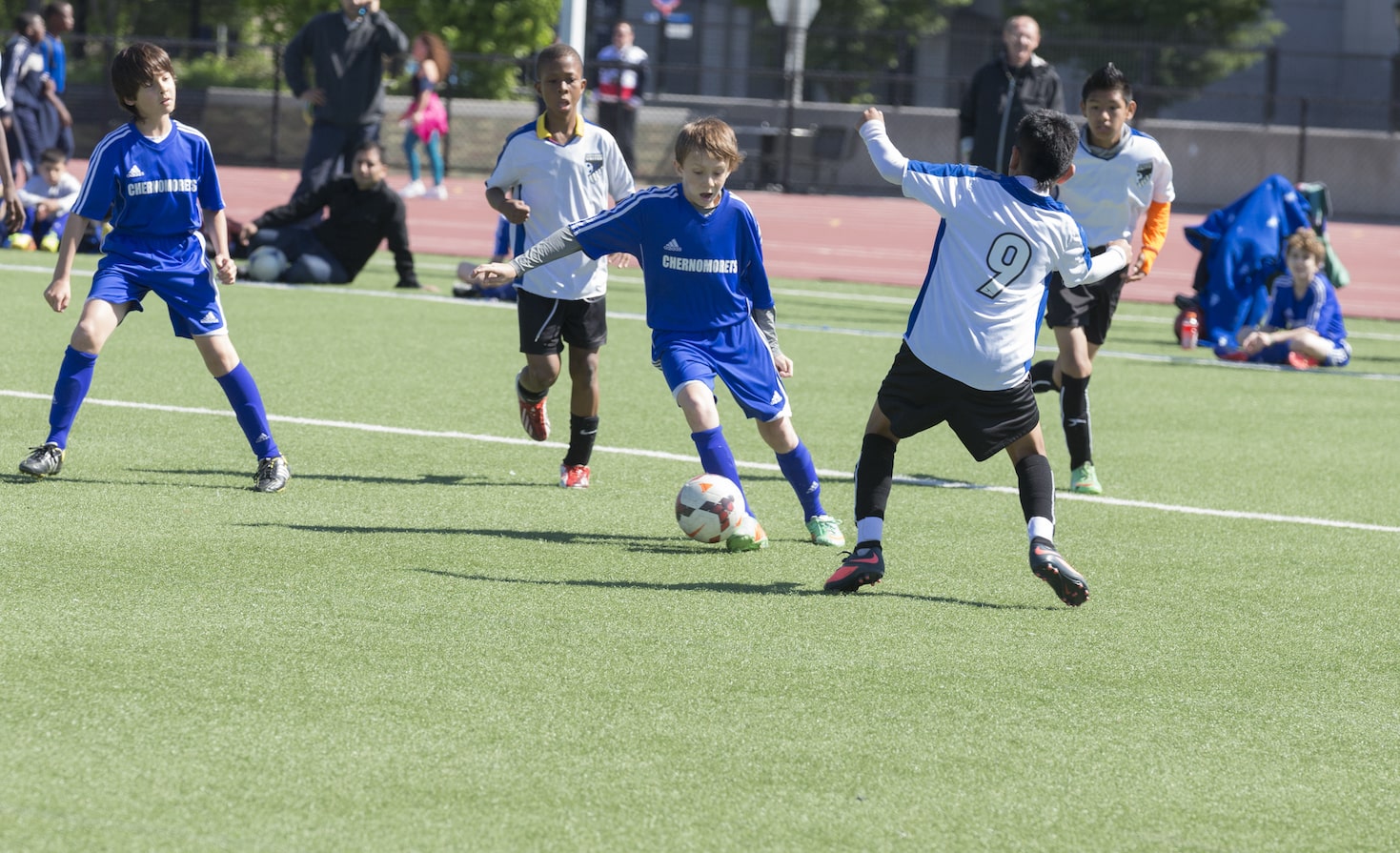
Focus on individual development is another essential principle in youth soccer coaching. Coaches should tailor training sessions to meet the specific needs of each player, providing personalized guidance and feedback. This approach allows players to develop their skills at their own pace, ensuring continuous growth throughout their soccer journey.
Creating a Positive Learning Environment
Effective communication and feedback play a crucial role in creating a positive learning environment for young soccer players. By providing clear instructions, actively listening to their concerns, and offering constructive criticism, coaches can enhance player development and foster a sense of trust and respect within the team.
Promoting teamwork and sportsmanship is essential to create an inclusive atmosphere where players feel valued and supported. Encouraging collaboration, emphasizing shared goals over individual achievements, and teaching the importance of fair play help cultivate strong bonds among teammates while promoting healthy competition.
Fostering a supportive and inclusive atmosphere is vital in youth soccer coaching. Coaches should create an environment where each player feels included regardless of their skill level or background. Emphasizing inclusivity, celebrating diversity, addressing any instances of discrimination or bullying promptly contribute to building self-esteem, confidence, and overall well-being among young athletes.
Focus on Individual Development
Identifying strengths and areas for improvement is crucial in youth soccer coaching. By conducting individual assessments, coaches can gain insight into each player's unique abilities and identify areas that require development. This approach allows for targeted training plans tailored to the specific needs of each player.
Personalized training plans are essential for fostering individual development in youth soccer coaching. By designing drills and exercises that address the identified strengths and weaknesses of players, coaches can facilitate growth and skill enhancement effectively. These customized plans create an environment where players receive focused attention, enabling them to reach their full potential.
Goal-setting and self-reflection play a vital role in individual development within youth soccer coaching. Encouraging players to set personal goals helps them stay motivated and strive for continuous improvement. Additionally, promoting self-reflection allows players to evaluate their performance objectively, identify areas needing further attention, and develop strategies to overcome challenges on their journey towards success.
Progressive Training Sessions
Implementing age-appropriate drills and exercises is crucial in progressive training sessions. By tailoring the drills to match the players' abilities, they are more likely to develop their skills effectively. Gradually increasing difficulty levels within these sessions challenges players and pushes them to improve their performance. Balancing technical training with tactical understanding ensures that players not only have the necessary skills but also understand how to apply them strategically in a game situation. This holistic approach enhances the overall development of young soccer players, preparing them for success on the field.
Youth Soccer Coaching - Effective Drills
Dribbling Drills: Incorporate cone drills to improve dribbling skills. Set up a series of cones in different configurations and have players weave through them using different parts of their feet. Encourage quick changes of direction and close ball control.
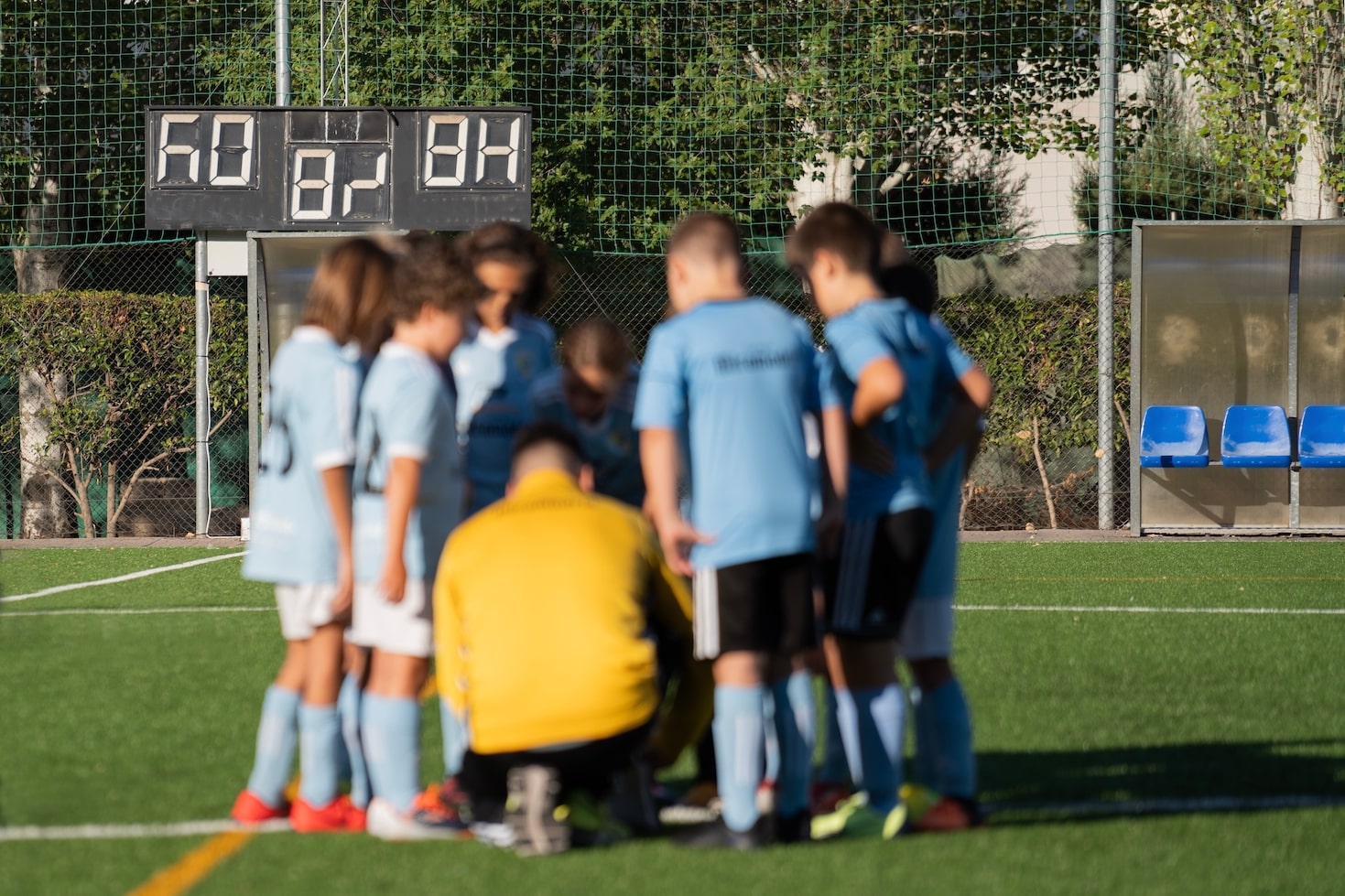
Passing and Receiving Drills: Emphasize accuracy and communication with passing drills. Create small-sided games where players must complete a certain number of passes before scoring. Teach proper technique for receiving the ball, focusing on first touch control.
Shooting and Finishing Drills: Develop precision and power with shooting drills. Use target goals or markers to challenge players to hit specific areas of the goal consistently. Introduce game-like scenarios that require quick decision-making in front of the net.
Defensive Drills: Enhance defensive fundamentals with 1v1 or 2v2 drills. Focus on body positioning, reading opponents' movements, and intercepting passes effectively. Incorporate pressure from attackers to simulate real-game situations.
Overall, these effective youth soccer coaching drills address key skills such as dribbling, passing/receiving, shooting/finishing, and defense by providing specific exercises that can be implemented during training sessions.
Dribbling Drills
Cone Dribbling Drill: Set up a series of cones in a straight line, about one yard apart. Players should dribble the ball through the cones using both feet, focusing on close control and quick changes of direction. Encourage players to keep their eyes up and maintain good body position while navigating through the cones.
Obstacle Course Dribbling Drill: Create an obstacle course with various objects such as cones, poles, or small hurdles. Players must navigate through the course while maintaining control of the ball. This drill improves agility, balance, and decision-making skills when dribbling under pressure from different obstacles.
1v1 Attack and Defense Drill: Set up two cones about 15 yards apart to create a playing area. Divide players into pairs with one player designated as the attacker and the other as the defender. The attacker starts with possession of the ball at one cone and tries to beat their opponent by dribbling past them towards the other cone. The defender's objective is to prevent this by applying proper defensive techniques such as jockeying or tackling effectively.
Passing and Receiving Drills
Triangle Passing Drill:
- Set up a triangle with three players, each positioned at one point.
- The players pass the ball to each other in a clockwise direction, working on their accuracy and timing.
- Encourage quick movement off the ball to create passing options.
Wall-Pass Combination Drill:
- Place two cones about 10 yards apart and position a wall or rebounder in between them.
- Players pass the ball against the wall using various techniques – inside foot, outside foot, instep – and then receive it back before moving on to another technique.
- Emphasize proper body positioning for both passing and receiving.
Diamond Receiving Drill:
- Arrange four cones in a diamond shape with about 10 yards between each cone.
- One player stands at each cone while another player starts at one of the cones with a ball.
- The player passes to one of their teammates who receives it under pressure from an opponent. They must control the ball effectively using different surfaces of their feet while maintaining good balance.
Shooting and Finishing Drills
Target Shooting Accuracy Drill: This drill focuses on improving shooting accuracy by setting up various targets around the goal. Players take turns shooting at the targets from different positions and angles, aiming to hit as many targets as possible within a given time limit. Coaches can provide feedback on technique and encourage players to visualize their shots before taking them.
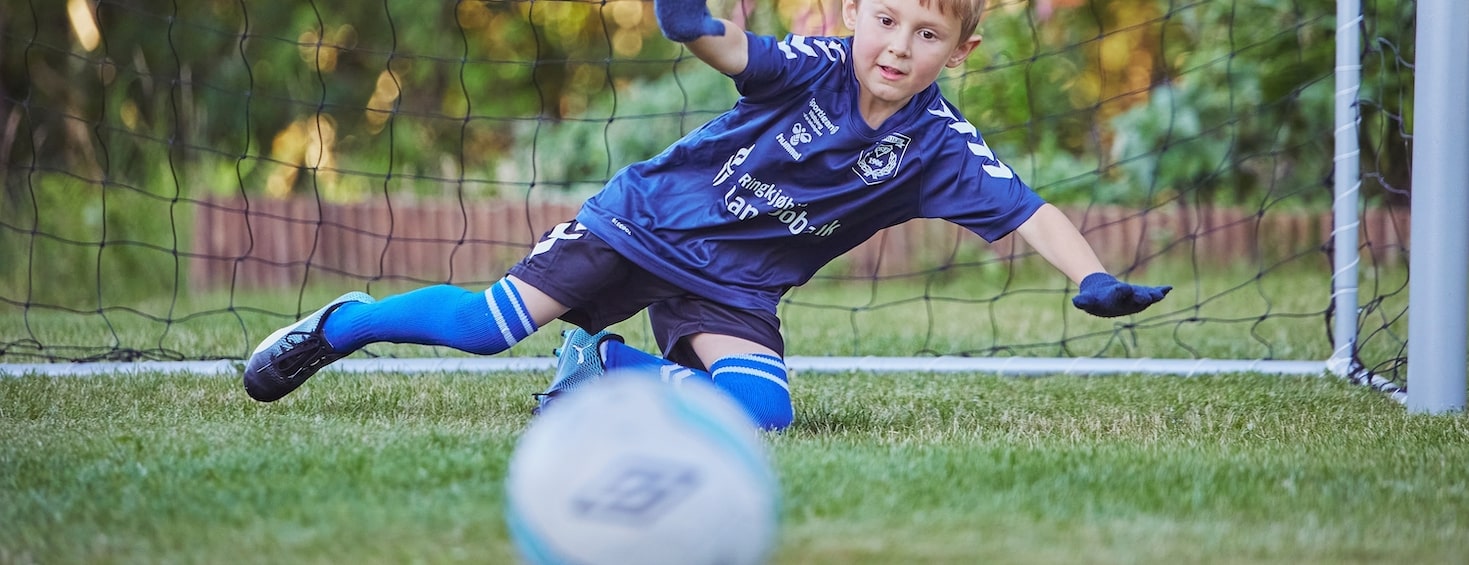
Breakaway Finish Drill: In this drill, players practice finishing skills in breakaway situations. One player starts with the ball near midfield while another player acts as a defender, attempting to catch up and defend against the attacker's shot. The attacker must use speed, agility, and precision to score while under pressure. Coaches can emphasize proper body positioning and decision making during breakaways.
Cross and Finish Drill: This drill simulates game-like scenarios where players work on crossing the ball accurately from wide areas for their teammates to finish. It requires coordination between wingers or fullbacks who provide crosses into the box, while attackers aim to make well-timed runs into scoring positions. Coaches should focus on timing of runs, communication among players, and effective finishing techniques inside the penalty area
Defensive Drills
Positional Defending Exercise: This drill focuses on teaching players how to maintain their positions and defend as a team. Set up cones or markers in the shape of a field and divide players into two teams. Each player has an assigned position to defend, and they must work together to prevent the opposing team from scoring. Emphasize communication, organization, and discipline in maintaining defensive shape.
Pressing in Numbers Drill: In this drill, players learn how to apply pressure collectively when the opposition is in possession of the ball. Divide players into two teams and set up a small playing area. One team starts with possession while the other tries to win it back by pressing aggressively as a group. Encourage quick transitions between attack and defense, compactness, and coordinated pressing movements.
Recovery Run Drill: This exercise helps improve defenders' speed, agility, and recovery ability after losing possession or being beaten by an opponent's dribble or pass. Set up cones along a straight line about 10-15 yards apart from each other. Players start at one end of the line facing forward; upon your signal, they sprint towards each cone before quickly changing direction back towards where they started. Focus on explosiveness off the mark and sharp changes of direction during these recovery runs.
Remember that effective defensive drills not only enhance individual skills but also foster teamwork among players' understanding their roles within different defensive scenarios during games.


Improve Your GameJust 1.99 p/m
Exclusive drills and sessions, get involved today!
- 100’s of Drills
- Coach to Camera Videos
- Sessions from Pro’s
- Industry Leading Advice
Youth Soccer Coaches - Coaching Tips
Effective Communication with Players
Clear instructions and expectations are crucial for effective communication with players. Coaches should communicate their objectives clearly, providing step-by-step instructions on drills and strategies. This helps players understand what is expected of them and allows them to perform at their best.
Active listening and feedback play a vital role in effective communication with players. Coaches should actively listen to the concerns, ideas, and suggestions of their team members. Providing constructive feedback helps players improve their skills while also fostering a positive learning environment.
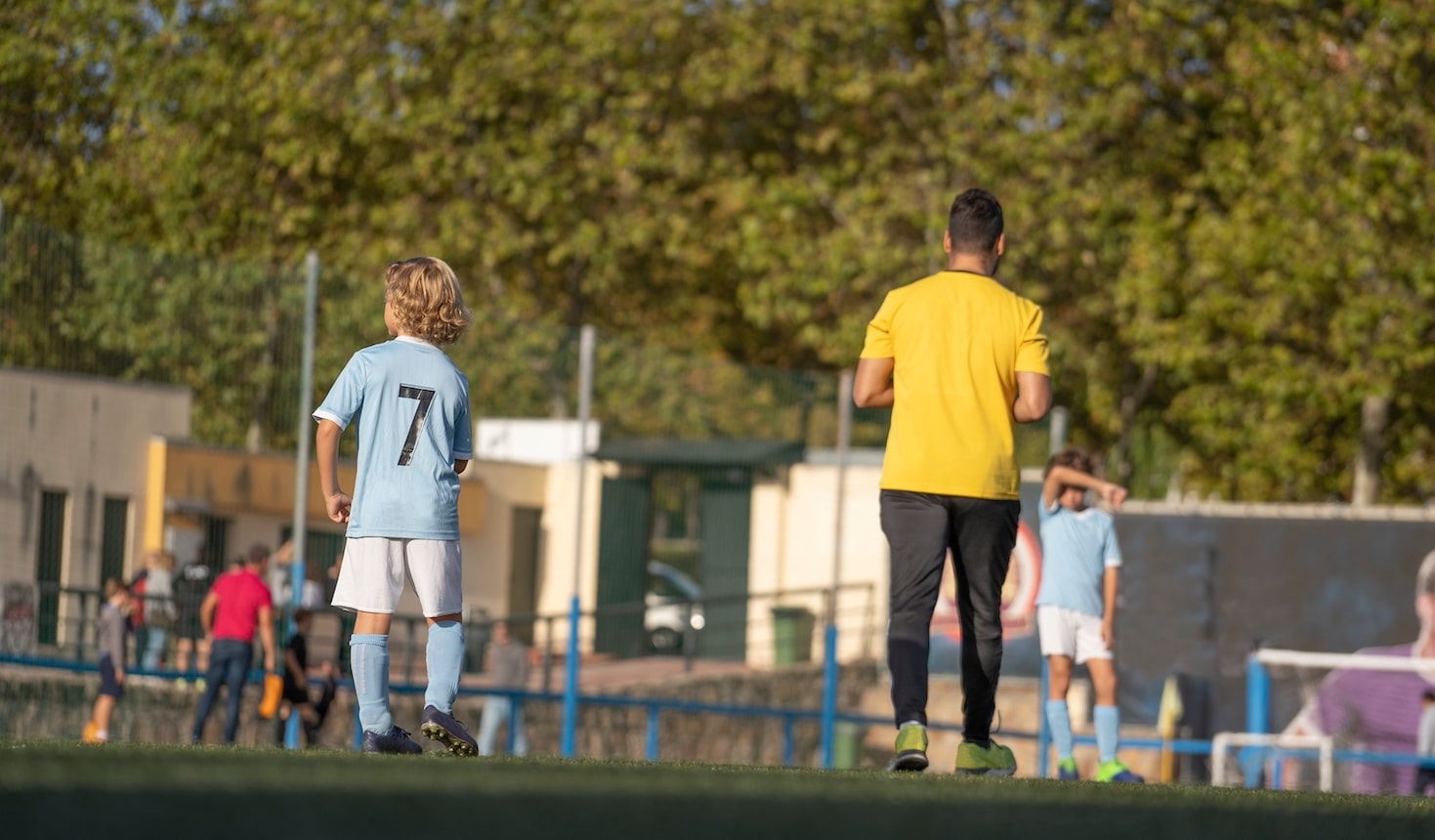
Using positive reinforcement is another key aspect of effective communication with players. Recognizing and praising good performance or effort boosts morale and motivates players to continue working hard. Positive reinforcement encourages a growth mindset among athletes, leading to continuous improvement on the field.
Motivating and Inspiring Players
Setting goals and creating a vision is crucial in motivating and inspiring players. By clearly defining what they want to achieve as individuals or as a team, players are more likely to stay focused and dedicated to their training. It helps them understand the purpose of their efforts and gives them direction towards success.
Creating a fun and competitive environment is another effective way to motivate players. When the training sessions are enjoyable, it enhances their enthusiasm for the sport and encourages them to push their limits. Incorporating small games, challenges, or friendly competitions can make practice sessions engaging while keeping the competitive spirit alive.
Recognizing individual achievements plays a significant role in motivating players. Whether it's scoring goals, making great passes, or showing exceptional sportsmanship, acknowledging these accomplishments boosts confidence and inspires athletes to continue working hard. Celebrating individual successes also fosters camaraderie among teammates as they support each other's growth on the field
Managing Behavior and Discipline
Establishing clear rules and consequences is crucial in managing behavior and discipline on the soccer field. Clearly communicate these expectations to your players at the beginning of each season, emphasizing the importance of respect, teamwork, and sportsmanship. Consistency is key when enforcing discipline - follow through with appropriate consequences when rules are broken to maintain a fair and structured environment. Additionally, address conflicts proactively by promoting open communication among players, encouraging them to resolve issues respectfully and collaboratively for a harmonious team dynamic.
Building Relationships with Players and Parents
1. Show genuine interest and care:
- Take the time to get to know each player and their parent.
- Ask about their interests, goals, and concerns.
- Listen actively and provide support when needed.
2. Maintain open lines of communication:
- Establish clear channels for communication with players and parents.
- Respond promptly to messages or inquiries.
- Provide regular updates on team progress, upcoming events, or changes in schedule.
3. Foster a positive team environment:
- Encourage teamwork, mutual respect, and sportsmanship among players.
- Recognize individual achievements publicly while addressing conflicts privately.
4. Involve parents in the coaching process:
- Organize parent meetings or workshops to discuss team goals, strategies, expectations etc.,
- Seek input from parents regarding their child's strengths, challenges etc.,
5. Demonstrate professionalism at all times:
- Be punctual for practices/games/meetings;
- Dress appropriately;
- Be well-prepared with training plans/materials;
Soccer Training Session Ideas for Youth
Warm-Up Activities
- Dynamic stretching: Incorporating movements that mimic the actions performed during a game, such as high knees and lunges, helps to increase flexibility and warm up the muscles.
- Agility ladder drills: Working on footwork and coordination by performing various ladder exercises can improve agility and quickness on the field.
- Passing and receiving warm-up: Engaging in passing drills with teammates helps players develop their communication skills, ball control, and accuracy in delivering passes.
Small Sided Games
Possession game: In this small-sided game, the objective is for one team to maintain possession of the ball while the other team tries to win it back. This drill helps players improve their passing accuracy and decision-making skills under pressure.
Attack vs. defense game: This small-sided game focuses on creating scoring opportunities for the attacking team while the defending team aims to prevent goals. It encourages players to work on their offensive tactics, such as positioning and movement off the ball, as well as defensive strategies like communication and teamwork.
Transition game: The transition game simulates quick changes from defense to offense or vice versa. Players practice transitioning effectively between attacking and defensive phases of play, developing their speed, agility, and decision-making abilities in match-like scenarios.
Game-Specific Drills
Dribbling through cones drill: Set up a course with cones placed at random intervals. Have players dribble the ball through the course, using both feet and changing direction quickly. Encourage players to keep their eyes up and maintain control of the ball while navigating through the cones.
Shooting and finishing drill: Create small goals or targets on either side of the field. Position players in front of each goal, providing them with opportunities to receive passes and shoot on target. Emphasize proper technique such as aiming for corners, using different parts of the foot, and making quick decisions in front of goal.
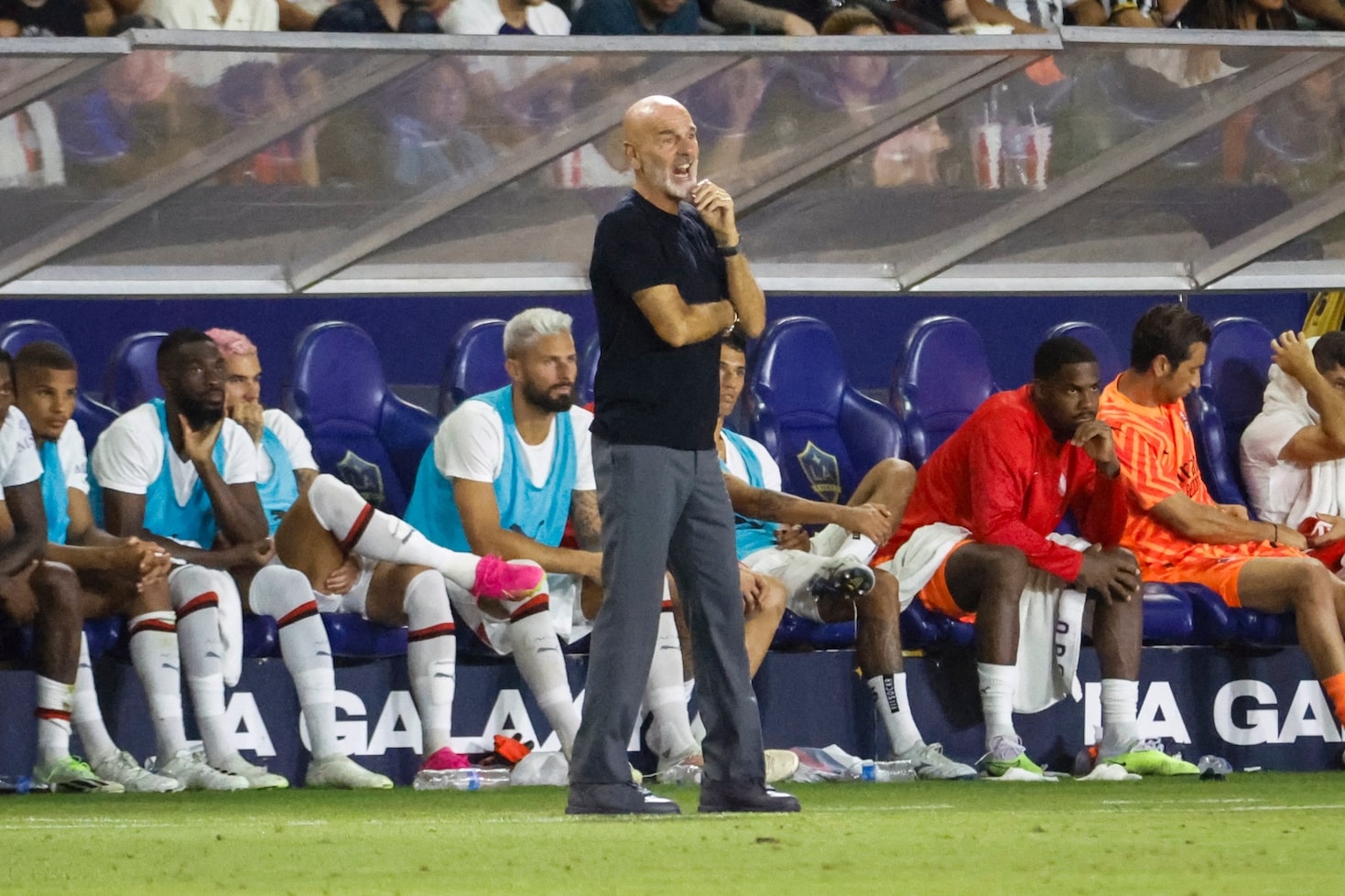
Defensive positioning drill: Divide players into pairs or small groups and set up mini-games where one team attacks while the other defends. Focus on defensive principles such as staying compact, communicating effectively, pressing opponents when appropriate, and maintaining good body shape to deny space for attackers. Provide feedback on positioning during each game situation to improve defensive awareness.
Conditioning Exercises
Sprint intervals: Incorporate short bursts of maximum speed followed by brief recovery periods to improve players' acceleration and overall speed on the field. This training method helps increase anaerobic capacity and enhances explosive power.
Circuit training: Create a series of stations that focus on different aspects of fitness, such as agility, strength, and cardiovascular endurance. Rotate players through each station, allowing them to work at high intensity while targeting multiple areas of conditioning.
Endurance run: Organize longer distance runs that challenge players' aerobic capacity. Encourage a steady pace throughout the run to build cardiovascular endurance and mental stamina necessary for sustained performance during matches.
Developing a Coaching Philosophy
Defining Your Coaching Principles
Creating a positive and inclusive team environment is crucial in youth soccer coaching. Encourage teamwork, cooperation, and mutual respect among players. Promote an atmosphere where everyone feels valued and included, regardless of their skill level or background.
Building player confidence and self-esteem is a fundamental principle of effective coaching. Provide constructive feedback, praise effort over outcome, and celebrate individual achievements. Help players believe in themselves and their abilities to overcome challenges on the field.
Fostering a growth mindset in your players is essential for long-term development. Encourage them to embrace mistakes as opportunities for learning and improvement. Emphasize the importance of hard work, perseverance, and continuous development rather than focusing solely on winning or losing matches.
Adapting to Different Player Abilities
Recognizing individual strengths and weaknesses is key when coaching youth soccer players. By observing their performance in practice and games, coaches can identify areas where players excel and areas where they need improvement. This knowledge allows coaches to tailor their training drills to each player's skill level, providing the appropriate challenge while also supporting growth.
To accommodate different skill levels, it is crucial for coaches to provide tailored drills during training sessions. Beginners may require more basic exercises that focus on building fundamental skills like dribbling or passing, whereas advanced players might benefit from complex drills that enhance tactical awareness and decision-making abilities. By designing specific activities for each group, coaches can ensure that all players are engaged and developing at an appropriate pace.
While challenging advanced players is important for their continued progress, it's equally essential to support beginners as they learn the game. Coaches should implement strategies that balance difficulty with guidance, allowing newcomers to build confidence while gradually introducing more demanding tasks. This approach fosters a positive learning environment where all players feel motivated and empowered to improve their skills.
By recognizing individual strengths and weaknesses, providing tailored drills for different skill levels, and implementing strategies that challenge advanced players while supporting beginners' development journey - youth soccer coaches can create an inclusive environment where every player has the opportunity to thrive on the field.
Emphasizing Long-Term Player Development
Setting realistic goals for each player's progression is crucial in emphasizing long-term player development. Coaches should assess the individual abilities and potential of their players to determine attainable objectives. By setting realistic goals, coaches can create a positive environment that encourages players to push themselves while also ensuring they do not become discouraged or overwhelmed.
Promoting consistent practice habits and dedication is another key aspect of long-term player development. Coaches must instill the importance of regular training sessions and encourage players to consistently give their best effort. This consistency will help players develop skills, improve physical fitness, and build mental resilience over time.
Providing opportunities for player leadership and decision-making further enhances long-term player development. Allowing players to take on leadership roles within the team helps them develop communication skills, problem-solving abilities, and confidence in decision-making on the field. By empowering players through these opportunities, coaches foster independence and personal growth.
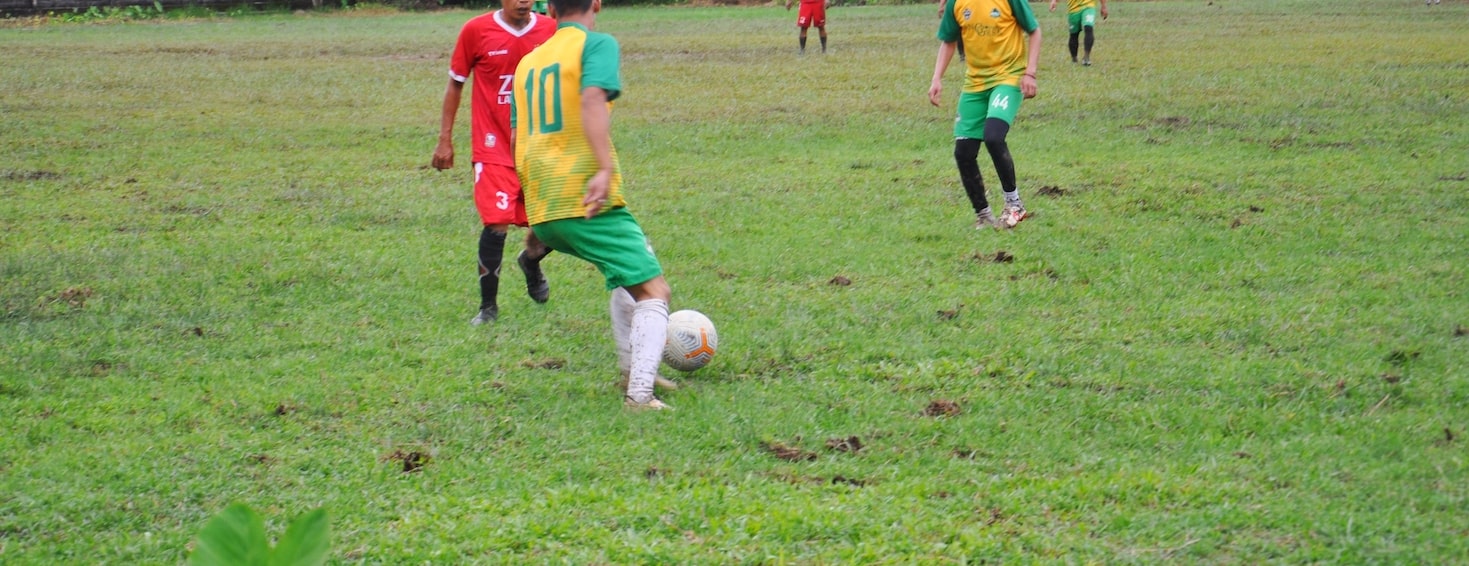
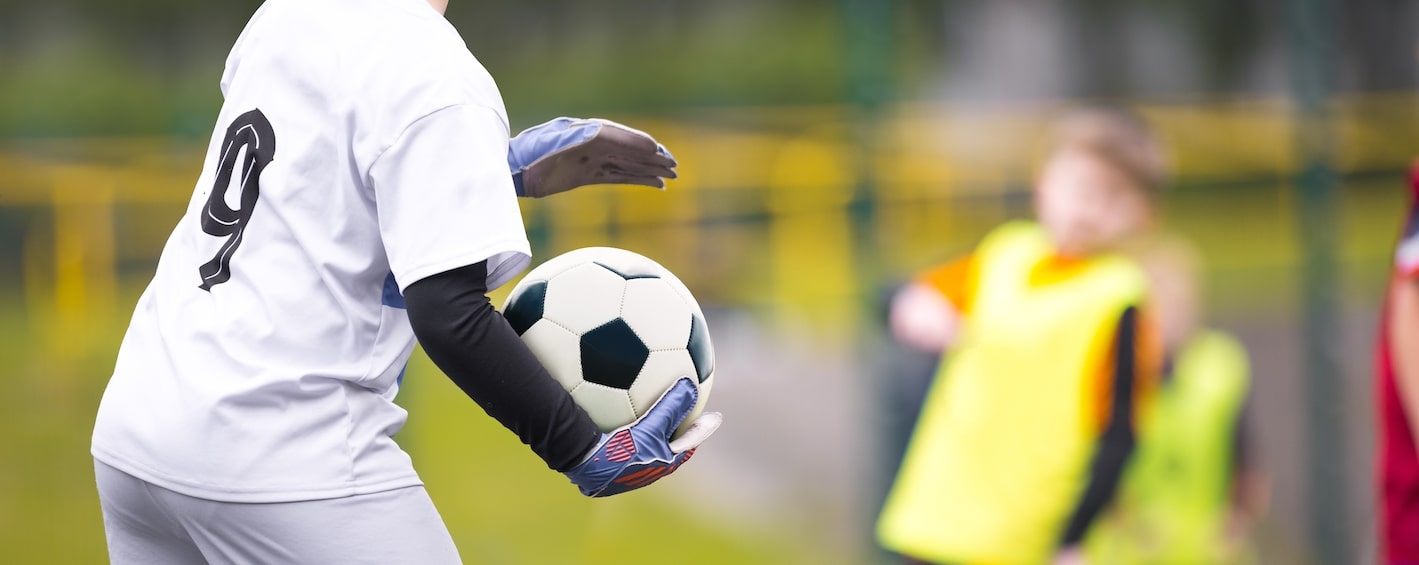
Cupello
Rethinking soccer coaching via our industry leading tools. Built to offer effective coaching development solutions for players and coaches of all levels.